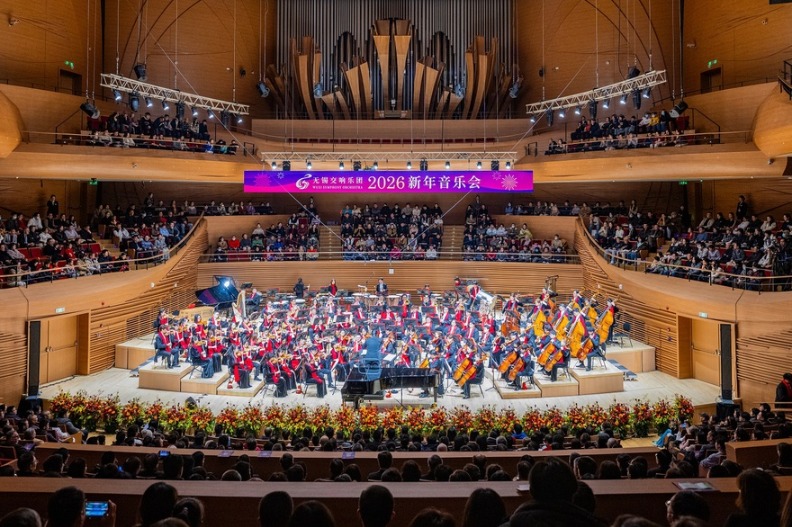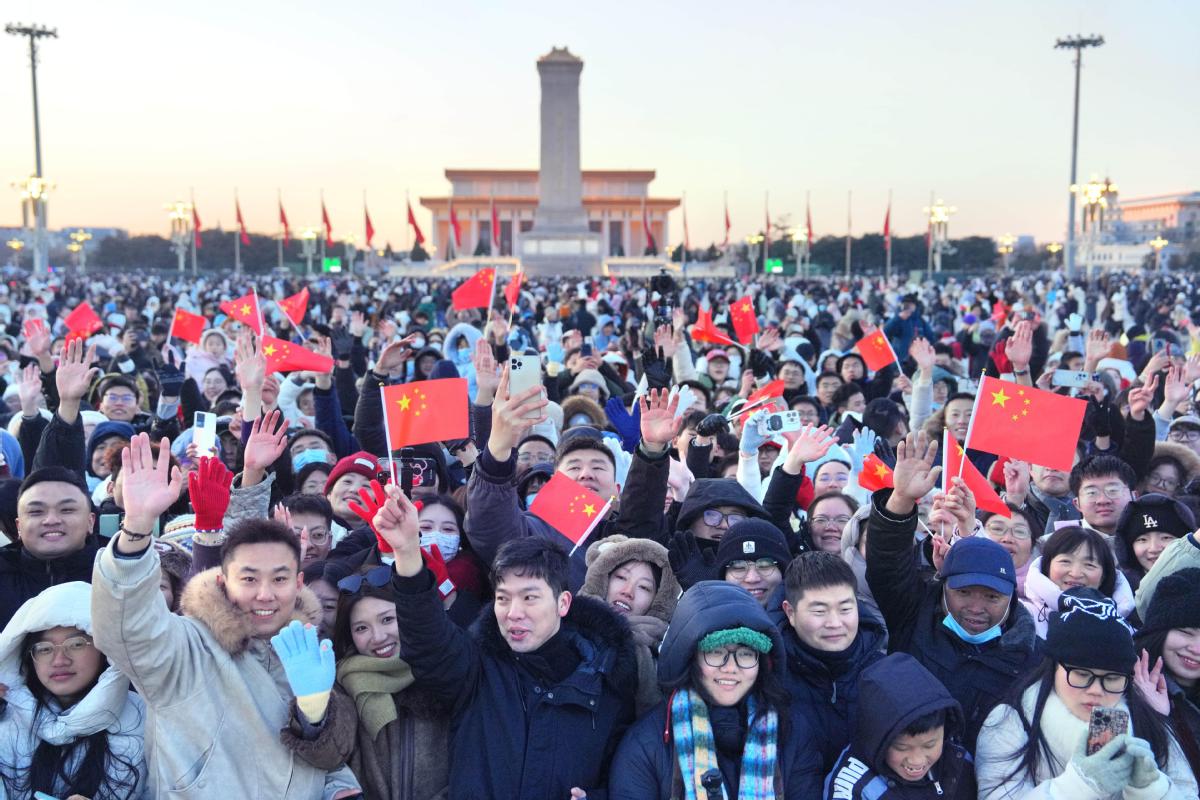Freight on track to promote opening-up

Chongqing's location in the mountains of Southwest China has prompted a saying among local people: "It is easier to get into heaven than get out of Chongqing."
Like other landlocked regions in the west of the country, logistical problems held the city back for hundreds of years. However, since the founding of New China in 1949, the municipality has invested heavily in its transportation infrastructure and become an international trade and logistics hub.
It now connects West China with Central and Southeast Asia, and Europe, and is also spearheading the opening-up of the country's inland areas.
During a 2019 inspection tour of the city, President Xi Jinping told Chongqing's leaders that its location on the upper reaches of the Yangtze River means it has a critical strategic position as the pivot point of the China Western Development Strategy and the connecting point of the Belt and Road Initiative and the Yangtze River Economic Belt. He also urged Chongqing to become a driver to advance the BRI.
Now, the mega city of more than 30 million people boasts fast, sound economic growth with booming global exchanges, having achieved double-digit growth in foreign trade for three consecutive years.
Last year, the total value of Chongqing's imports and exports was 651.34 billion yuan ($100 billion), a year-on-year rise of 12.5 percent, according to local customs figures.
Trade ties with countries taking part in the BRI are also getting closer, with 175.21 billion yuan last year, up 9.8 percent from 2019.
In recent years, the city has hosted a series of high-level international exhibitions and conferences, including the Smart China Expo, the West China International Investment and Trade Fair and the Belt and Road International Skills Competition.
In addition to the 19 current national opening-up platforms, such as the China-Singapore (Chongqing) Demonstration Initiative on Strategic Connectivity, the China (Chongqing) Pilot Free Trade Zone and Liangjiang New Area, Chongqing will continue to build a high-quality opening-up platform and improve the level of its open economy, said Tang Liangzhi, Chongqing's mayor, in a recent article in the journal Qiushi.
"Chongqing will speed up the upgrading and transformation of foreign trade, explore diversified markets in BRI countries and build a sound international business environment to promote open, high-quality economic development," he said.
Construction of the 505-kilometer Chengdu-Chongqing Railway started the region's opening-up process. The railway, which opened in 1952, links the capital of Sichuan province and neighboring Chongqing.
Also known as the Chengyu Railway, it was the first line built after the founding of the People's Republic of China. It was also the first in the country's southwestern region.
Proposed by Deng Xiaoping, then secretary of the CPC Central Committee's Southwest Bureau, construction started in 1950, even though there was a shortage of materials and technology.
Despite the challenging circumstances, 100,000 soldiers from the People's Liberation Army and civilian workers participated in the project, completing it in just two years.
"Completion of the railway in such a short time after the (civil) war proved that the CPC could not only win battles, but also had the ability to lead China's economic development," said Zhou Yong, director of the Chongqing Research Office of CPC History.
In recent decades, local people have been so eager to better connect with the outside world that they have launched a number of innovative projects.
A decade of transportation
On March 19, China Post launched a set of commemorative postcards to celebrate the 10th anniversary of the opening of the China-Europe Railway Express.
When the first train left Chongqing and traveled to Duisburg in Germany, it opened a new chapter in the history of international railway transportation. The more-than-11,000-km line crosses the border at Alashankou, Xinjiang Uygur autonomous region, and passes through Kazakhstan, Russia, Belarus and Poland before reaching its destination.
The journey takes an average of 16 days, less than half the time of the maritime route, and is changing Chongqing's role from that of an inland city to a bridgehead for China's gateway to the West.
Hewlett-Packard makes laptops in Chongqing. The railway saves the PC company significant time and transportation costs, according to Tony Prophet, HP's former senior vice-president, speaking in 2013.
Over the past 10 years, nearly 8,000 freight journeys have been made on the route, whose transportation value ranks first among the 60 cities in the country that operate China-Europe freight services.
To further promote the development of the inland regions, Chongqing's Liangjiang New Area was established in 2011, becoming the third national development zone after Pudong in Shanghai and Binhai in Tianjin.
The establishment of Liangjiang New Area demonstrates that reform and opening-up has expanded to the vast inland areas and will create a new pattern connecting coastal and inland areas and promoting better communications between East and West, according to Du Shulin, director of the Liangjiang New Area information office.
Boasting a large river port, airport and rail network, the area is the starting point of the New International Land-Sea Trade Corridor, which was developed under the China-Singapore (Chongqing) Demonstration Initiative on Strategic Connectivity, signed in 2016.
It links 260 ports in 96 countries and regions worldwide as part of the 21st-Century Maritime Silk Road and the Silk Road Economic Belt (the two main components of the BRI), said Han Baochang, former director of the project's administration, earlier this year.
The route enables goods from China's western regions to be shipped by road, rail and water to and from countries such as Singapore through the Beibu Gulf in the Guangxi Zhuang autonomous region. It also connects Europe with Southeast Asia, with Chongqing acting as a key rail hub.
Compared with the traditional route via the Yangtze River and Shanghai, the new route is a faster way to connect China's inland western regions with major ports in the south, saving about 20 days in journey time.
?
- Shandong apple pickers find new fame as influencers
- Ferry links mark 25-year travel milestone
- Cooperation can boost cross-Strait integration
- Global experts hail Xi's people-centered message
- Trips promote equality and coexistence
- Interest in Turkiye soars among Chinese tourists after introduction of visa-free entry



































